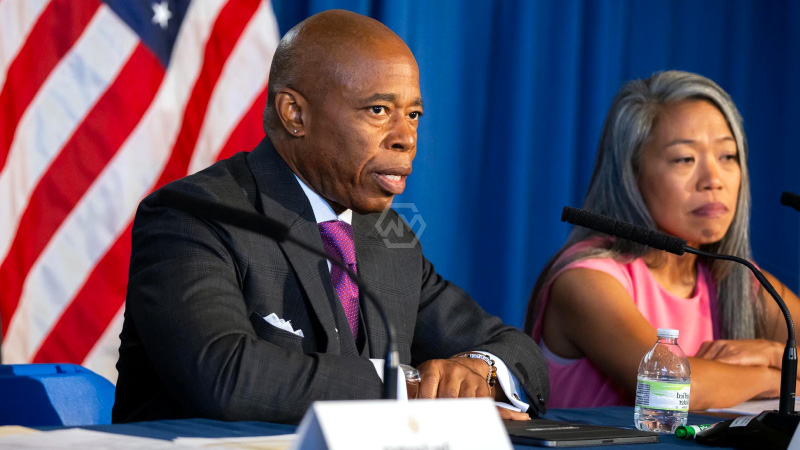- Four deputy mayors in Eric Adams’ administration resigned, deepening City Hall instability.
- The resignations come amid federal corruption allegations against Adams.
- Gov. Kathy Hochul is weighing options, including potential mayoral removal.
Eric Adams’ mayoral administration faces unprecedented turbulence after four top deputies—Maria Torres-Springer, Anne Williams-Isom, Meera Joshi, and Chauncey Parker—announced their resignations.
Beyond the immediate crisis, the broader implications of these resignations could disrupt governance in New York City. Adams’ decision to cooperate with federal immigration authorities, allegedly in exchange for the DOJ dropping corruption charges, has fueled speculation of political maneuvering. With Gov.
Eric Adams’ Leadership in Jeopardy Amid Senior Staff Exodus
The abrupt resignation of four key deputy mayors signals a turning point in the Adams administration. These officials were instrumental in executing Adams’ policies on public safety, housing, and social services, and their departures leave a leadership vacuum that could paralyze city governance. The loss of trust among senior staff mirrors growing discontent among New York’s elected officials, some of whom are now actively seeking Adams’ removal.
Amid this chaos, Gov. Kathy Hochul’s involvement adds another layer of complexity. While she has the authority to remove Adams, exercising that power would set a historic precedent. Instead, lawmakers may explore alternatives like the Inability Committee, which could declare the mayor unfit to govern. The coming weeks will determine whether Adams can weather the storm or be forced out.
Public reaction has been mixed, with some supporting Adams’ defiance and others condemning what they see as a political deal with the federal government. His recent meeting with Trump’s border czar and cooperation with ICE enforcement efforts have drawn sharp criticism, particularly from progressive factions within the city. If more officials resign or withdraw support, Adams may find his administration unable to function effectively.
While Adams insists he will not step down, his political standing is growing weaker by the day. The city’s future now hinges on whether he can regain trust and navigate the storm of legal and political challenges ahead. With the June mayoral primary approaching, opposition candidates are seizing the moment to present themselves as viable alternatives.
Eric Adams’ future as mayor remains uncertain as key officials depart and political pressure mounts. His administration must swiftly address leadership gaps and public concerns to restore stability. Whether through resignation, removal, or resilience, Adams’ next moves will define New York City’s governance in the months ahead.
“The price of greatness is responsibility.” – Winston Churchill



